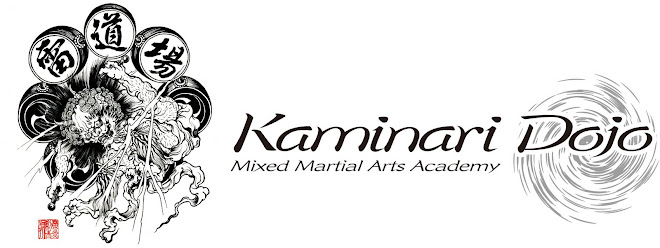I saw this posted on the Underground Forum and thought I would share it with eveyone.
For those of you with hopes of fighting professionally one day:
We all get ahead of ourselves from time to time.
Sometimes we need to take a step abck and remember that patience is a virtue.
The Value of an Amateur MMA Program
By Nick Lembo
July 2009
It was February 11, 2006 and promoter Kipp Kollar was presenting another installment of his professional mixed martial arts show, Reality Fighting, inside the Etess Arena at the Taj Mahal.
Chris Fanelli was making his professional debut on that card against a very good fighter, Chris Schlesinger of Bellmore Kickboxing. Schlesinger won that fight by submission.
After that bout ended, I approached Fanelli and spoke to him about the fight. Fanelli mentioned about the adreneline dump that he encountered during the fight and the emotions of fighting in front of so many friends and family in such a large venue.
While driving home back up the parkway to Ocean County that night, Fanelli’s words kept replaying in my mind. I started thinking how mixed martial artists go from jiu-jitsu or grappling tournaments to their first professional fight. The focus of one fight in one cage in a large venue is much different then a tournament with several mats and a crowd focusing on several different points of interest.
The next night, I was on the road again to another show. This night, I would be attending an amateur boxing event. I watched the trainer coaching these young fighters as they worked to develop their skills to enable them to have a successful professional future.
On that drive home, I decided that New Jersey needed an amateur mixed martial arts program.
After developing some rules and procedures and training officials, New Jersey held its first regulated approved amateur mixed martial arts event, in the Atlantic City Convention Center.
Since then, New Jersey hosts about thirty amateur mixed martial arts events a year, from Newark to Wildwood. Promoters like Lou Neglia, Kipp Kollar and Karriem Abdallah have held several amateur shows while New Breed Fighters has become a staple in Atlantic City and the Asylum Fight League regularly hosts shows in central New Jersey.
The amateur program allows competitors to test their skills in the cage for the first time and experience the emotions and adrenaline that comes along.
It allows returning competitors to test themselves further against tougher opponents and allows trainers to work on game plans that feature strengths. It allows competitors to be exposed to opponents with different strengths, skill sets and body types.
The amateur rules limit ground and pound and force the competitors to work on their jiu-jitsu, balance, positioning and defense. Sure, ground and pound is an integral part of mixed martial arts, but you must be technically proficient in jiu-jitsu to go anywhere in this sport.
It is an opportunity for fighters to hone their skills and try new manuevers without the attachment of a loss on their professional record which will affect their marketability and pay rate.
I recieved some flak from the mixed martial arts press in February after approving Tuan Pham this past February to make his pro debut against a fighter from a good school that had over 10 pro fights. I did not hesitate to approve the match because i had seen Tuan’s skills and demeanor in several amateur fights. Tuan ended up winning the fight by first round knockout. The amateur program provides me with a gauge to monitor match making of pro fighters when they make their transition to the professional level.
I am very pleased to see the number of amateur fighters who have made seamless transitions to the pro level.
I am also pleased when numerous pro fighters come up to me to say that they wish this program existed when they were starting out in mixed martial arts competitions.
At each event, new schools are having their fighters participate in the program and are joining the ranks of the many fight camps that have participated in our program since its inception.
In closing, I ask that trainers and amateurs také advantage of this amateur program. Do not rush to turn pro, once you do, there is no turning back. Use the amateur program to develop your skills and work on all your weaknesses. In the current state of the sport, it is very important to have a pristine record against seasoned opponents to get noticed by the bigger organizations which will pay you better purses and provide you with needed exposure.
.jpg)
No comments:
Post a Comment